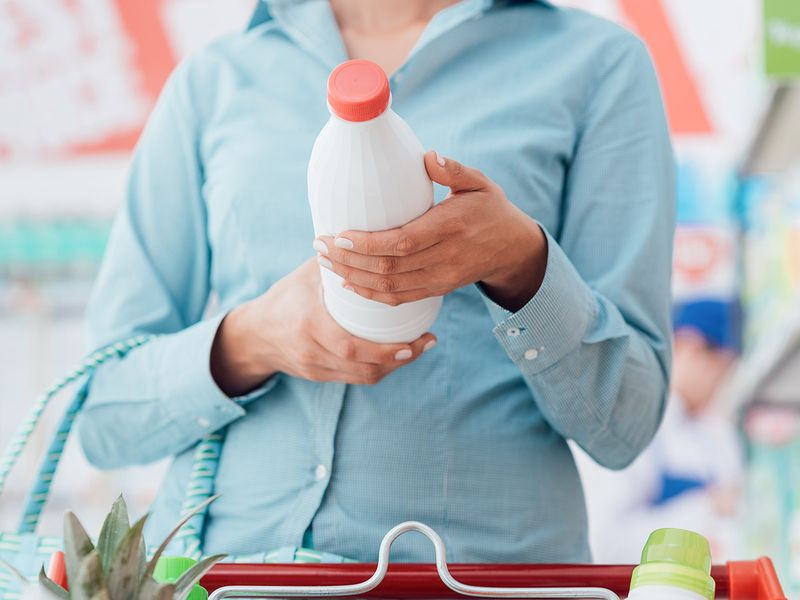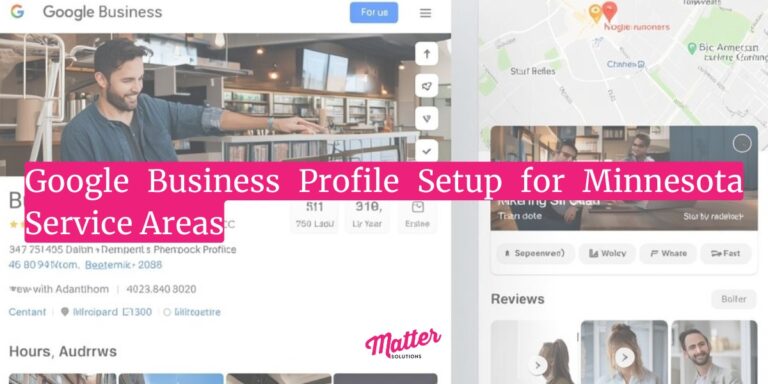Why Labeling and Safety Matter in Nutrition Products
If you’re selling nutrition or supplement products, you already know that one small labeling mistake can cost a brand its reputation. A wrong claim or missing allergen warning can lead to consumer complaints or even legal trouble. Labels aren’t just stickers — they’re the voice of trust between a brand and its customers. When your label clearly shows accurate ingredients, dosage, and safety information, it helps people believe in your product. That’s exactly why companies today treat product labeling as a serious part of their brand identity and customer care.
The Evolving Regulatory Landscape in the U.S.
Here’s the thing — the American nutrition market is heavily regulated. The FDA (Food and Drug Administration) makes sure every supplement label follows strict standards. From nutrition facts panels to structure/function claims, every word counts. Rules keep changing, and staying compliant isn’t easy if you’re managing everything from another country. This is where TruLife Distribution helps global brands — by guiding them through U.S. regulations, reviewing product labels, and ensuring they meet every compliance requirement before launch. Their in-house team handles documentation, claim reviews, and product submissions, so your brand enters the market with full confidence.
Why Reliable Labeling and Safety Frameworks Are Essential for U.S. Market Entry
If your brand is new to the United States, you’ll quickly realize that getting your label right is only the first step — keeping it compliant over time is another challenge. TruLife Distribution helps companies create sustainable labeling and safety frameworks. That means they don’t just check your label once; they help you maintain compliance, update as rules evolve, and verify product details before distribution. With their regulatory oversight and brand management expertise, international companies can focus on growth while TruLife ensures every product meets U.S. standards.
In short, nutrition product labeling and safety solutions are not optional anymore — they’re the foundation of trust and long-term success. With expert partners like TruLife Distribution, brands can confidently step into the American market knowing their labels, safety processes, and compliance standards are handled by professionals who truly understand the industry.
The Regulatory Landscape for Nutrition Product Labels
Key U.S. Laws and Agencies That Oversee Nutrition Labels
If you’re planning to launch a nutrition or wellness brand in the U.S., it’s impossible to ignore the strong role of federal regulations. The FDA (Food and Drug Administration) and FTC (Federal Trade Commission) are the two main agencies responsible for ensuring that nutrition products are labeled accurately and marketed truthfully. The DSHEA (Dietary Supplement Health and Education Act) gives the FDA authority to monitor supplement labeling, while the NLEA (Nutrition Labeling and Education Act) ensures that every label tells consumers exactly what’s inside the product.
For example, if a company claims “supports immunity,” the statement must be backed by proper scientific data and must include a disclaimer stating that it’s not intended to diagnose or cure diseases. This helps protect consumers and keeps brands transparent. TruLife Distribution helps international companies navigate these complex requirements, making sure every label meets U.S. legal standards before the product hits the shelves.
What Labeling Compliance Actually Requires
Labeling compliance isn’t just about listing ingredients — it’s about clarity, truth, and accuracy. A compliant label must include a Supplement Facts Panel, a complete ingredient list, and any allergen warnings required by law. Even the font size, placement of information, and order of ingredients follow specific FDA rules.
Let’s say a brand forgets to mention soy or tree nuts in its allergen section — that’s a major violation and can lead to an immediate recall. TruLife Distribution ensures this never happens by reviewing and verifying every label detail. Their regulatory experts cross-check formulations, labeling structure, and product claims to help brands avoid costly mistakes. This kind of detailed oversight gives both retailers and customers confidence that every product is safe and compliant.
Recent Changes and Emerging Trends in Labeling Standards
Here’s the thing — U.S. labeling laws aren’t static; they evolve regularly to reflect new health trends and scientific findings. Recently, the FDA has tightened rules around nutrient content claims and transparency for plant-based products. Brands are now expected to disclose more about ingredient sources, allergen traces, and sustainability practices.
For growing wellness brands, staying updated with these trends can feel overwhelming, especially when you’re managing operations from outside the U.S. That’s why many turn to TruLife Distribution. The company keeps its clients ahead of new requirements by tracking updates, adjusting product labels, and ensuring documentation stays current. This proactive approach not only helps brands remain compliant but also builds long-term consumer trust in a competitive market.
In short, understanding and following U.S. labeling regulations isn’t just about ticking boxes — it’s about building credibility and protecting your brand’s reputation. And with TruLife Distribution guiding you through every step, you’ll have the confidence that your nutrition product labeling and safety solutions are always compliant, clear, and ready for the American marketplace.
Critical Safety Considerations Beyond Just Labeling
Why Product Safety Goes Deeper Than Just a Label
Here’s the thing — a perfect label doesn’t mean a safe product. Even the most beautifully designed and compliant packaging can’t protect your brand if what’s inside isn’t handled safely. Real safety starts long before the label goes on the bottle — during ingredient sourcing, manufacturing, and product handling.
Imagine a nutrition brand that sources ingredients from multiple suppliers. If even one supplier fails to maintain proper hygiene or documentation, the entire batch could face contamination risks. This is exactly why TruLife Distribution focuses not only on regulatory labeling but also on the broader safety framework that keeps products consistent and compliant throughout the supply chain.
Contaminant Control, Traceability, and Shelf Stability
When it comes to consumer safety, contaminant control is non-negotiable. Every ingredient used in a nutrition product must be verified, tested, and traceable. TruLife Distribution ensures that the brands it supports maintain a transparent ingredient trail — from source to shipment. This traceability allows any safety issue to be identified and isolated quickly.
Let’s say a supplement batch shows an irregularity during testing. With a traceability system in place, that specific batch can be tracked, recalled, or re-evaluated before it reaches store shelves. TruLife also emphasizes shelf stability, ensuring that product formulations remain effective and safe throughout their intended shelf life. It’s not just about selling a product — it’s about keeping it safe and trustworthy from production to purchase.
Allergen Management and Cross-Contamination Prevention
If you’ve ever seen “may contain nuts” or “processed in a facility that handles soy” on a label, you know how critical allergen management is. Even trace amounts of allergens can trigger severe reactions, and that’s something no responsible brand wants to risk.
TruLife Distribution works closely with its partnered brands to make sure allergen information is clearly declared and manufacturing practices prevent cross-contamination. They assist in reviewing facilities, verifying supplier protocols, and ensuring all packaging aligns with FDA allergen disclosure rules. The goal is simple — protect consumers and maintain absolute trust in every product that carries your brand name.
Product Recall Readiness and Crisis Protocols
No brand ever plans for a recall — but smart ones prepare for it. A recall-ready system can be the difference between a quick, contained issue and a reputation-damaging crisis. TruLife Distribution helps brands build proactive safety plans, including product tracking, recall response protocols, and crisis communication strategies.
For example, if a supplement’s labeling or formulation error is detected post-distribution, TruLife’s compliance and operations team coordinates immediate action — from notifying distributors to updating regulatory bodies — so the issue is handled professionally and fast. This readiness gives brands confidence that even in a worst-case scenario, they can protect their customers and maintain long-term credibility.
In short, nutrition product labeling and safety solutions go hand-in-hand — one supports transparency, the other ensures protection. With TruLife Distribution managing both sides, brands don’t just meet U.S. standards — they build the kind of safety reputation that keeps customers loyal for years.
Common Labeling Challenges Brands Face
Ingredient Data Inaccuracies and Supplier Inconsistencies
A lot of nutrition brands underestimate how tricky ingredient accuracy can be — until a small mismatch becomes a big problem. When a supplier provides incomplete or inconsistent ingredient data, it directly affects the accuracy of your label. Imagine this: your formula lists “natural flavoring,” but the supplier later updates it to include soy derivatives. If the label isn’t corrected, that single detail could violate FDA rules or trigger an allergen warning issue.
That’s why TruLife Distribution helps brands maintain clean, verified ingredient documentation from day one. Their team ensures every product formulation is backed by transparent supplier data, verified test results, and regulatory checks. This process minimizes labeling errors, reduces compliance risks, and ensures the information displayed on every bottle is exactly what’s inside — no confusion, no inconsistencies.
Claims Verification and Legal Constraints
Here’s the thing — catchy claims like “immune support,” “low fat,” or “non-GMO” sound great on packaging, but they come with strict legal boundaries. Every claim must be truthful, verifiable, and backed by scientific data. For instance, if your product says “boosts energy,” you can’t just rely on customer reviews; you need solid research or evidence to support that statement.
TruLife Distribution helps brands stay compliant by conducting thorough label and claims reviews before a product enters the U.S. market. Their experts cross-check all marketing statements against FDA and FTC guidelines to ensure the wording is compliant and accurate. This not only protects your brand from regulatory penalties but also builds credibility with your customers — because a truthful label always earns more trust than an exaggerated one.
Formula Updates and Label Maintenance Over Time
A brand’s product formula can evolve — maybe you add a new vitamin blend, remove artificial coloring, or switch to organic ingredients. The challenge? Keeping the label updated every single time. Many brands forget that even a minor change in formulation requires a review of the Supplement Facts Panel and ingredient list.
TruLife Distribution makes this process seamless. They maintain a continuous compliance system, reviewing any formula or packaging changes to ensure the label stays current and accurate. Their regulatory team not only updates the details but also checks if the revised formula triggers any new labeling requirements. For example, a shift to plant-based ingredients might require different nutrient disclosures. By handling this ongoing process, TruLife saves brands from costly oversights and keeps their products compliant year after year.
In simple words, labeling challenges don’t just happen once — they evolve as your brand grows. That’s why having an expert partner like TruLife Distribution ensures your nutrition product labeling and safety solutions stay accurate, compliant, and trustworthy at every stage of your brand’s journey.
Nutrition Product Labeling and Safety Solutions
Integrated Label Development and Verification Systems
Let’s break it down — creating a nutrition label isn’t just about printing ingredients and nutrition facts. It’s about designing a label that reflects accuracy, compliance, and trust. Every small detail matters — from serving sizes to font readability. When these elements are handled through a structured system, it reduces both human error and regulatory risk.
TruLife Distribution uses a well-organized process to support brands in building accurate and compliant labels. Their regulatory and creative teams work side by side to verify all information before a product goes to market. For example, if a supplement claims to be “sugar-free” or “gluten-free,” TruLife ensures the label aligns with FDA standards and the actual product formulation. This integrated system helps brands launch products confidently while maintaining consistency across packaging and documentation.
Automated Compliance Checks and Verification Tools
Here’s the thing — manual label reviews can miss details, especially when rules keep evolving. That’s why many leading companies now rely on automated compliance verification tools to ensure accuracy at every stage. These systems check ingredient lists, nutrition facts, and claim statements against the latest FDA and FTC requirements.
TruLife Distribution uses advanced compliance technology combined with hands-on expertise. Their team runs automated checks before approval to catch missing disclosures or incorrect formatting. Imagine catching a typo in an allergen statement before the product ships — that’s the kind of precision TruLife brings to every brand they partner with. This proactive approach not only saves time but also prevents costly reprints, recalls, or market delays.
Cross-Functional Collaboration Between R&D, Regulatory, and Marketing Teams
A label isn’t created in isolation — it’s the result of teamwork between research, regulatory, and marketing teams. When communication gaps exist, even small errors can slip through. Maybe the R&D team updates a formula, but the marketing team still uses old claims, or the regulatory team isn’t informed about a new ingredient. These misalignments can easily lead to compliance issues.
That’s why TruLife Distribution promotes cross-functional collaboration. Their process connects departments through clear communication channels, ensuring everyone works with the same verified data. If a formula changes, TruLife updates the compliance review, adjusts the claims, and ensures the marketing copy stays accurate. This kind of internal coordination keeps product information aligned, prevents confusion, and protects the brand’s credibility.
In short, nutrition product labeling and safety solutions are all about precision, collaboration, and trust. With TruLife Distribution managing the process — from label design to compliance verification — brands can focus on innovation, knowing their labeling and safety systems meet every U.S. standard with accuracy and confidence.
Role of a Partner in Supporting Labeling & Safety: TruLife Distribution’s Value
How a U.S. Market Entry Partner Streamlines Labeling and Safety Workflows
Here’s the thing — breaking into the U.S. nutrition market isn’t just about having a great product. It’s about understanding the rules, meeting compliance standards, and making sure every label tells the truth. For many international brands, this process can feel overwhelming. That’s where having a reliable U.S. market entry partner becomes a game changer.
A professional partner helps simplify what would otherwise be a maze of paperwork, label verification, and safety protocols. Instead of managing multiple consultants and agencies, brands can work with one experienced partner who already understands the U.S. system. TruLife Distribution does exactly that — they bring together regulatory, labeling, logistics, and marketing support under one roof. By doing so, they save brands valuable time, reduce risk, and ensure every product that enters the market is both compliant and consumer-ready.
TruLife Distribution’s Approach: Compliance Oversight, Label Review, and Regulatory Support
When it comes to nutrition labeling, accuracy isn’t optional — it’s mandatory. TruLife Distribution takes a hands-on approach to make sure every client’s label meets U.S. legal standards. Their compliance team carefully reviews ingredient lists, health claims, and nutrition facts before a product is launched. If something doesn’t align with FDA or FTC guidelines, they help fix it early — before it becomes a costly issue.
For example, if a brand’s supplement formula includes a new botanical ingredient, TruLife’s regulatory experts check whether it qualifies as a dietary ingredient under DSHEA (Dietary Supplement Health and Education Act). They also verify the label’s format, allergen warnings, and disclaimers. Beyond that, TruLife provides ongoing compliance monitoring, ensuring that as U.S. regulations evolve, your product stays updated and legally sound. This proactive oversight builds long-term confidence for both brands and consumers.
Real-World Scenario: Helping a Brand Enter the U.S. Market Safely and Confidently
Imagine an international wellness company planning to sell its collagen supplement line in the United States for the first time. The formula meets global standards, but the brand isn’t familiar with U.S. labeling laws — especially how to phrase claims like “improves skin elasticity” or “supports joint health.” That’s where TruLife Distribution steps in.
Their team reviews the entire product documentation, reformats the label according to U.S. FDA requirements, and makes sure all claims are properly substantiated. They also handle communication with testing labs, coordinate logistics, and confirm that packaging and labeling are consistent across every shipment. By managing the compliance, safety, and market-entry process from start to finish, TruLife helps the brand avoid delays and build credibility from day one.
In simple words, having a partner like TruLife Distribution isn’t just helpful — it’s essential. They don’t just guide brands through labeling and safety regulations; they become an extension of the brand’s own team. With TruLife’s expertise, companies can focus on growth and innovation, knowing their nutrition product labeling and safety solutions are handled with precision, compliance, and complete professionalism.
Best Practices & Tips for Brands to Stay Ahead
Use Dynamic Workflows with Regular Audits and Updates
Let’s be honest — labeling and compliance aren’t one-time tasks; they’re ongoing processes. Rules change, ingredients evolve, and what’s compliant today might need an update tomorrow. That’s why successful brands rely on dynamic workflows that include regular audits and reviews. These help identify small labeling or formulation errors before they turn into major issues.
TruLife Distribution supports brands by conducting periodic compliance checks and label audits. Their team keeps an eye on the latest FDA updates and makes sure every product label aligns with current U.S. standards. For instance, if new guidelines affect how allergens or structure/function claims should appear, TruLife helps update your labels right away — ensuring you always stay compliant and ahead of competitors.
Maintain Ingredient and Supplier Transparency
Here’s the thing — consumers today care about what’s inside their nutrition products more than ever before. They want to know where ingredients come from, how they’re processed, and whether they’re safe. That’s why maintaining supplier transparency isn’t just about compliance; it’s about trust.
TruLife Distribution helps brands verify ingredient data directly from suppliers and ensures that every source is documented and traceable. Let’s say your supplier changes the origin of a key ingredient — without transparency, that single update could lead to labeling errors or compliance concerns. With TruLife managing supplier records, all ingredient details are verified, stored, and monitored through a secure, trackable system. This builds reliability and consumer confidence while protecting your brand’s reputation.
Perform Pre-Submission Reviews and Mock Audits
A smart brand doesn’t wait for a regulatory inspection to find mistakes — it prepares in advance. Pre-submission reviews and mock audits simulate the FDA review process before your product officially launches. This proactive step helps identify weak areas like incomplete claims, missing disclaimers, or formatting issues.
TruLife Distribution conducts these pre-launch evaluations to make sure every product label is ready for scrutiny. For example, if a brand wants to launch a “vitamin complex” in the U.S., TruLife’s experts perform a mock audit to confirm that the label, documentation, and claims are airtight. That way, when it’s time for actual submission or retail placement, there are no surprises — just smooth approval and confident distribution.
Keep Documentation and Change Logs Up to Date
If you think paperwork isn’t as important as the product, think again. Documentation is what proves compliance, and change logs are what protect you when updates happen. Every time a product formula, ingredient, or label is revised, it should be recorded — who changed it, why it changed, and when it changed.
TruLife Distribution maintains detailed documentation trails for all client brands. This includes version-controlled label files, formulation records, and regulatory submissions. For example, if a regulator ever questions a product update, TruLife can provide instant proof that the change followed proper compliance steps. This organized recordkeeping not only saves time during audits but also shows that your brand operates with complete transparency and professionalism.
In short, staying compliant isn’t just about following rules — it’s about building a system that evolves with your brand. With TruLife Distribution managing your workflows, audits, and documentation, your nutrition product labeling and safety solutions remain accurate, trusted, and future-ready in a constantly changing regulatory landscape.
Conclusion
Building Trust Through Clear Labels and Safe Practices
When you think about it, a product label is the first promise a brand makes to its customer — and safety is how that promise is kept. If your label speaks clearly and your product delivers safely, people remember the experience and come back. In today’s market, accuracy isn’t just about avoiding fines; it’s about earning long-term loyalty. Customers value honesty, and a transparent, compliant label says more about your brand’s integrity than any marketing slogan ever could.
The Advantage of Working With an Experienced Partner
Managing labeling rules, supplier data, and regulatory updates on your own can be stressful — especially if your company is expanding into a market as complex as the U.S. That’s where TruLife Distribution brings real value. Their team doesn’t just check boxes; they build systems that keep your products compliant, organized, and ready for growth. By handling label reviews, safety documentation, and regulatory communication, TruLife helps brands stay focused on product quality and innovation instead of getting lost in paperwork.
Moving Forward With Confidence
If your goal is to grow in the American nutrition and wellness space, the smartest move is to make compliance part of your strategy, not an afterthought. With TruLife Distribution guiding your process, every product you launch reflects precision, safety, and credibility. Their experts make sure your nutrition product labeling and safety solutions are not just compliant — they’re a reflection of your brand’s commitment to doing things the right way.
In the end, clear labeling builds trust. Strong safety systems protect it. And with TruLife by your side, your brand can confidently build both.
FAQs
How often should nutrition labels be updated?
Here’s the thing — nutrition labels aren’t something you design once and forget. They should be reviewed whenever there’s a change in formula, ingredients, or regulations. For example, if you replace a sweetener or add a new vitamin blend, that update must reflect on the label. Even if your product doesn’t change, it’s smart to schedule an annual or bi-annual compliance review to stay aligned with new FDA guidelines. TruLife Distribution helps brands by regularly auditing product labels, identifying what needs revision, and ensuring every update meets the most current U.S. labeling standards.
Can small brands avoid expensive audits?
It’s a common worry — small or emerging brands often think audits are costly or only meant for large corporations. But here’s the truth: preventive reviews are always cheaper than a recall or fine. You don’t need massive budgets to stay compliant; what you need is the right guidance. TruLife Distribution offers scalable compliance and label review services designed to fit different business sizes. So even if you’re a growing startup, you can maintain full compliance without overspending.
What are the penalties for non-compliance?
Non-compliance with U.S. labeling laws can lead to serious consequences — from product seizures to financial penalties and even loss of retail partnerships. Imagine launching a product that gets pulled from shelves because of a missing disclaimer or misprinted nutrition fact — it’s a costly setback. TruLife Distribution helps brands avoid such situations by conducting pre-market label reviews, checking claims, and verifying ingredient data before distribution. Their proactive approach ensures your products stay compliant and retail-ready at all times.
Is U.S. labeling different from Europe or other markets?
Yes, it’s quite different. The U.S. has its own set of rules and agencies — primarily the FDA and FTC — that govern how nutrition products are labeled and marketed. For instance, certain terms that are acceptable in Europe (like “detox” or “energizing”) might require disclaimers or scientific proof in the U.S. market. TruLife Distribution helps international brands adapt their existing product labels to meet American standards, ensuring all claims, measurements, and ingredients are presented exactly as required by U.S. law.







